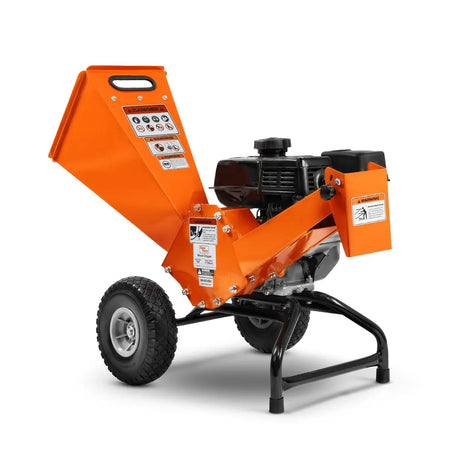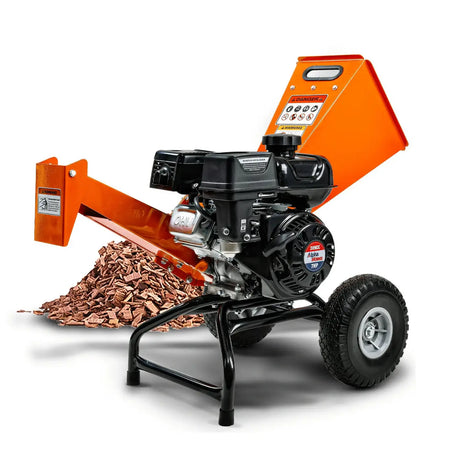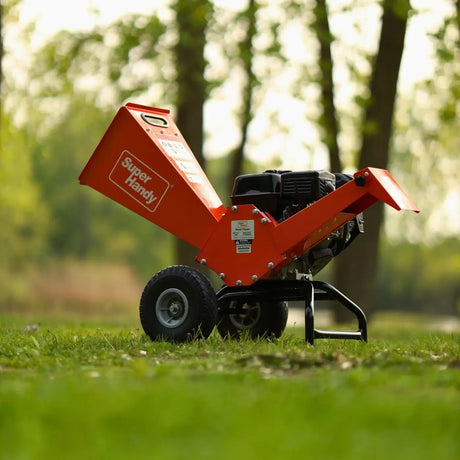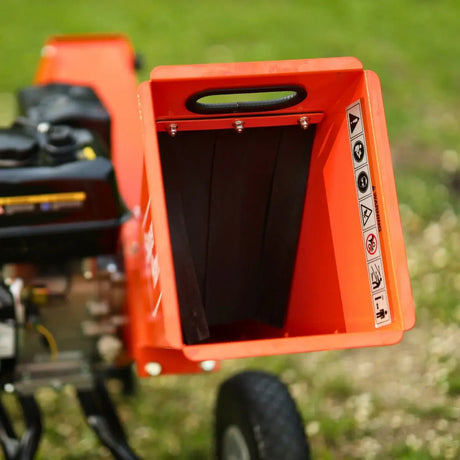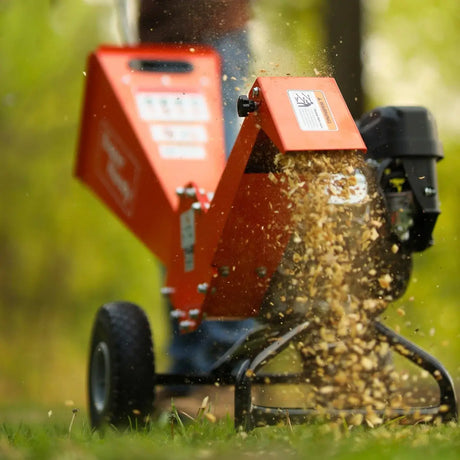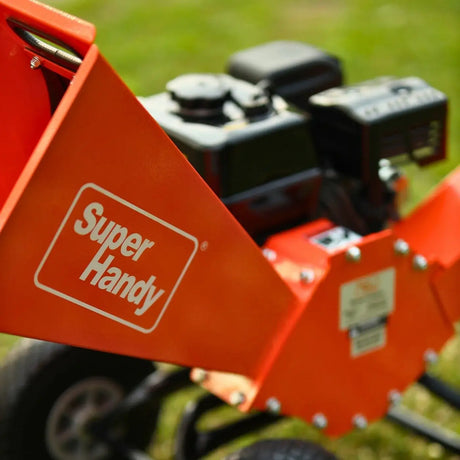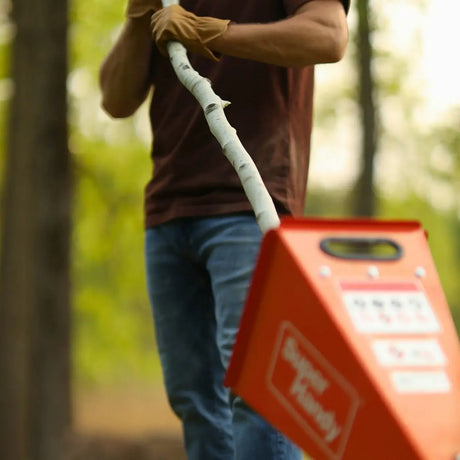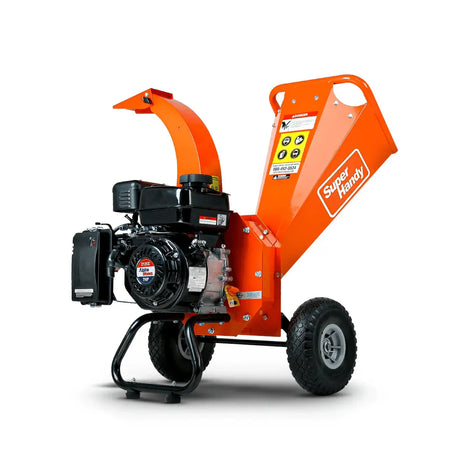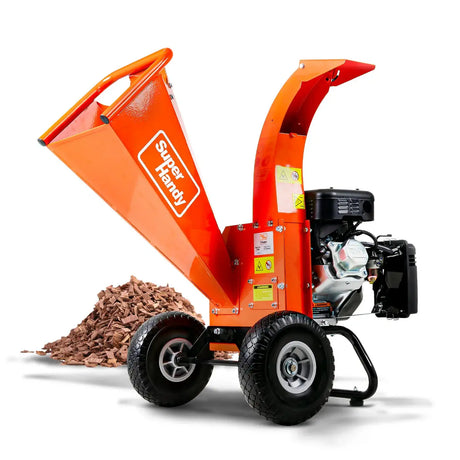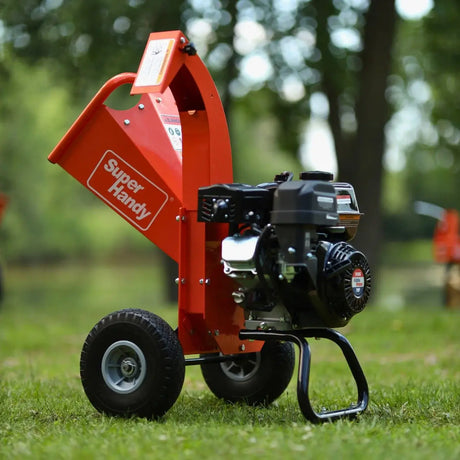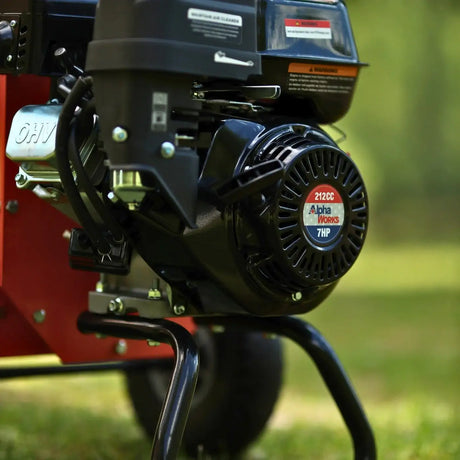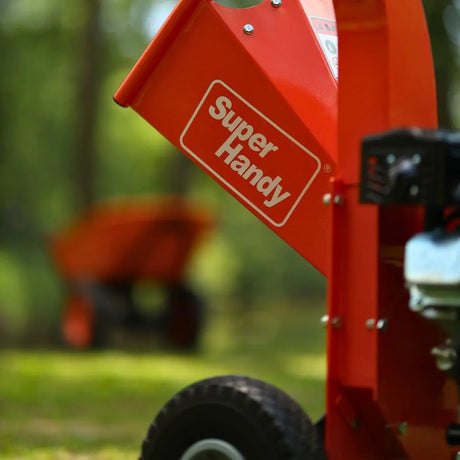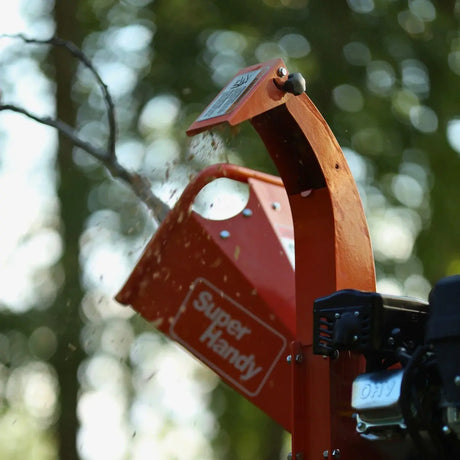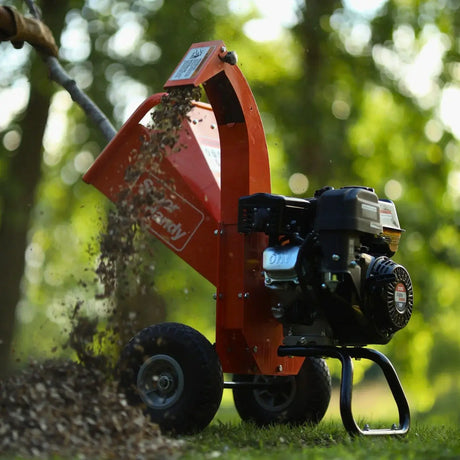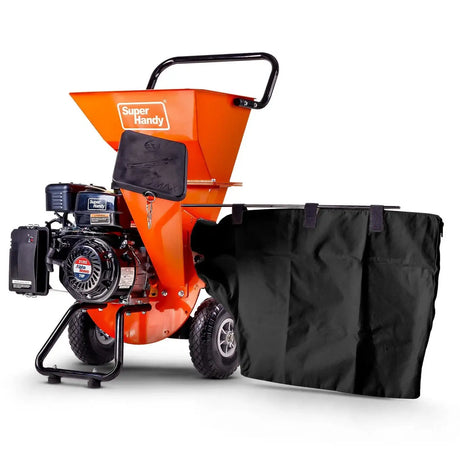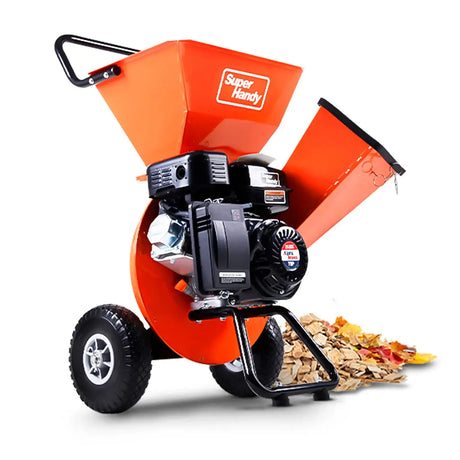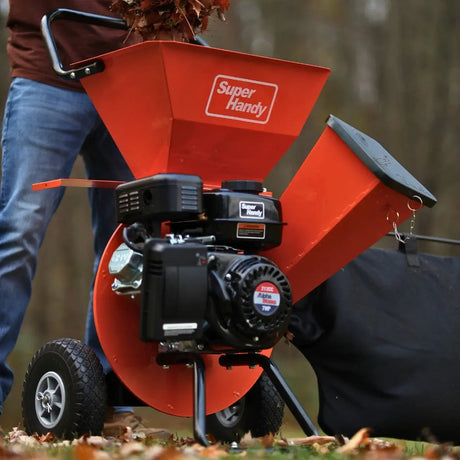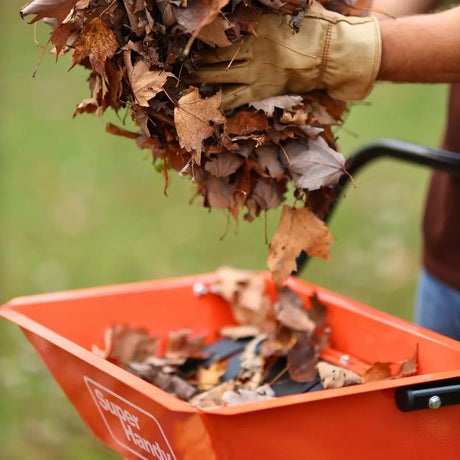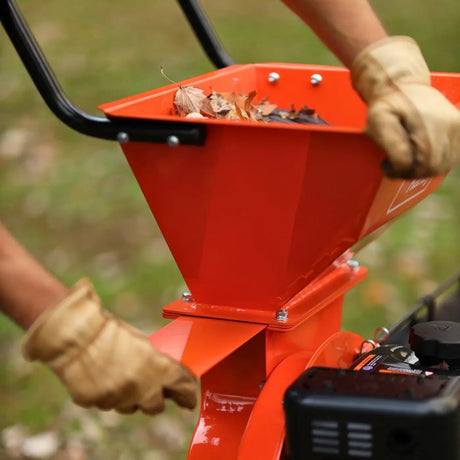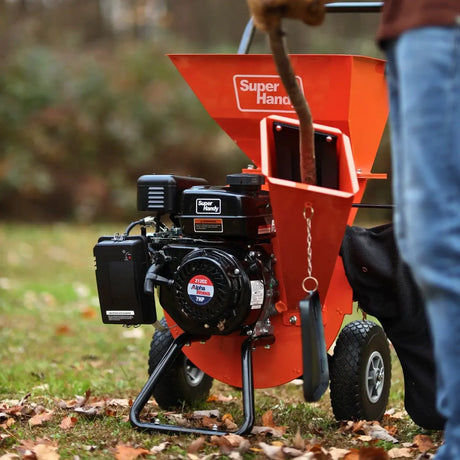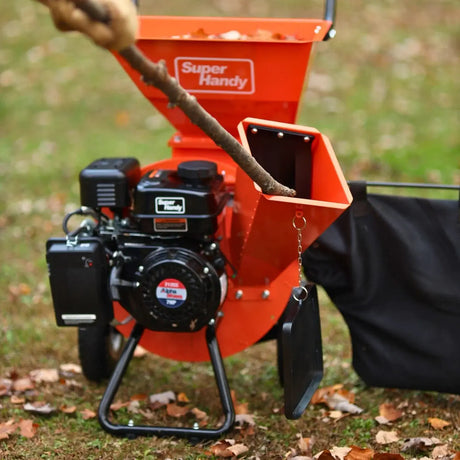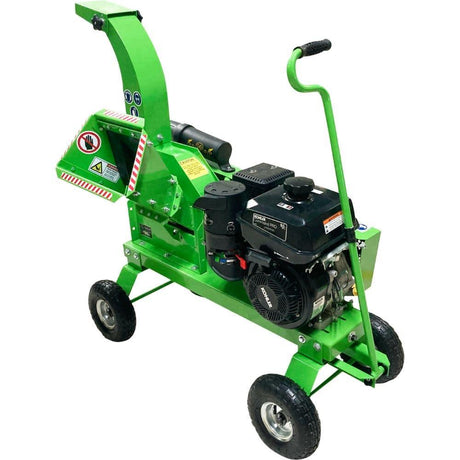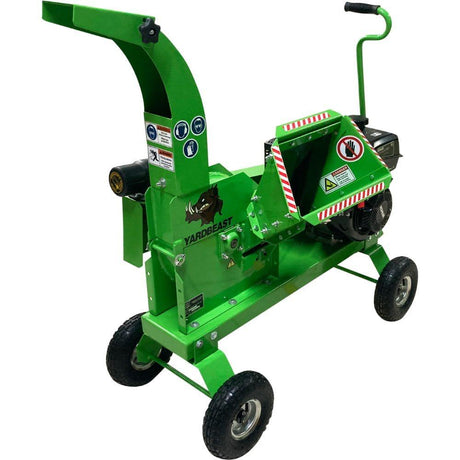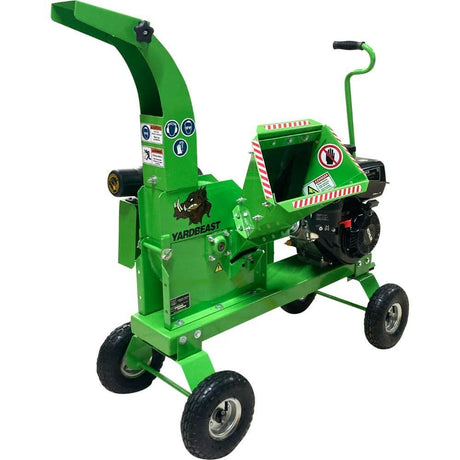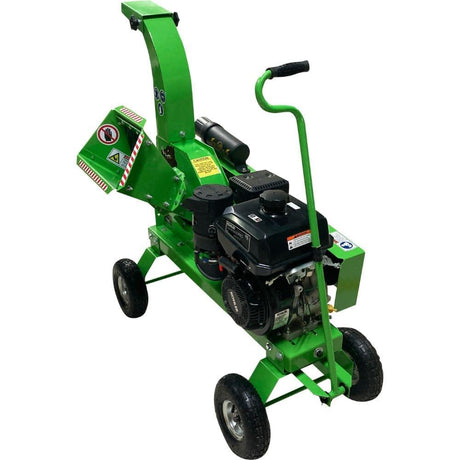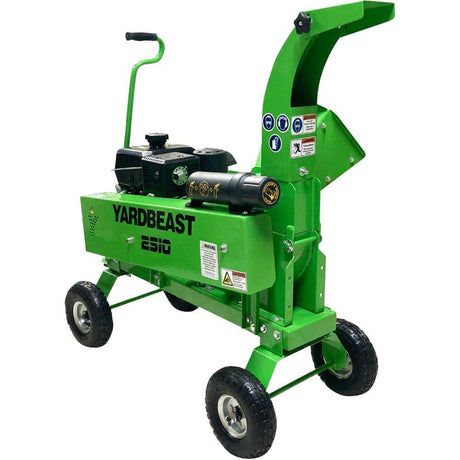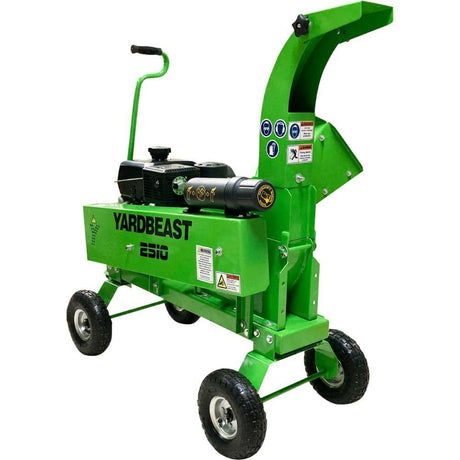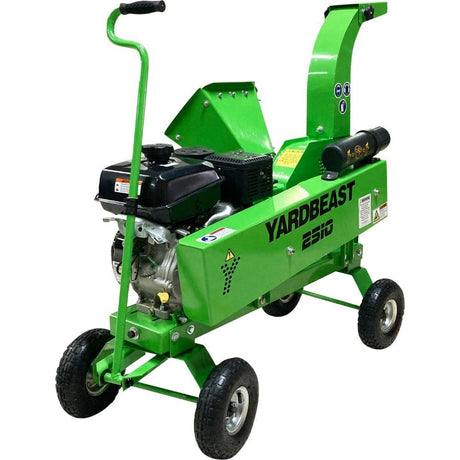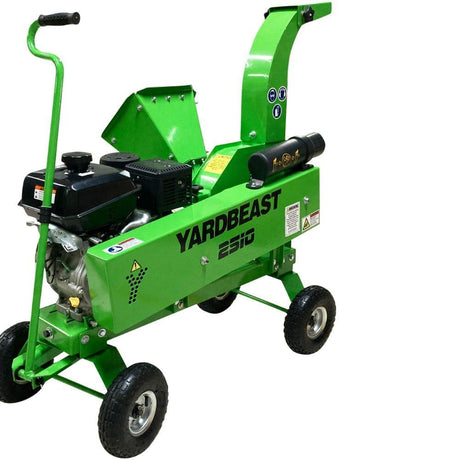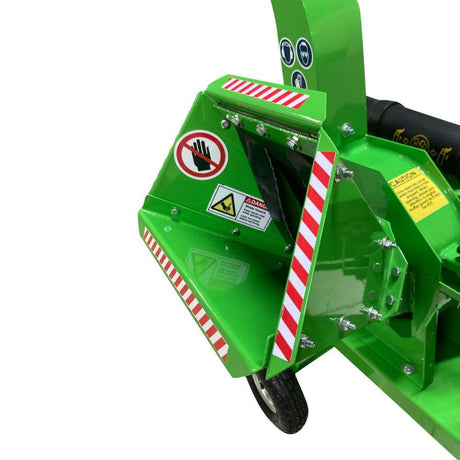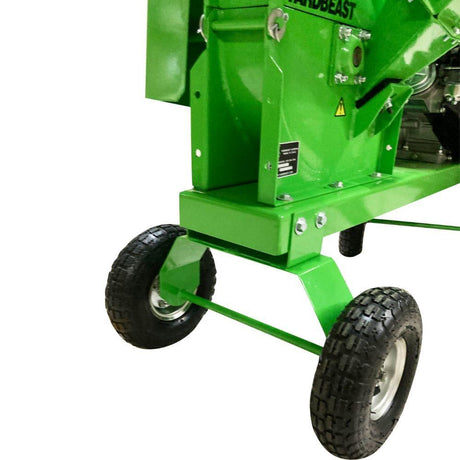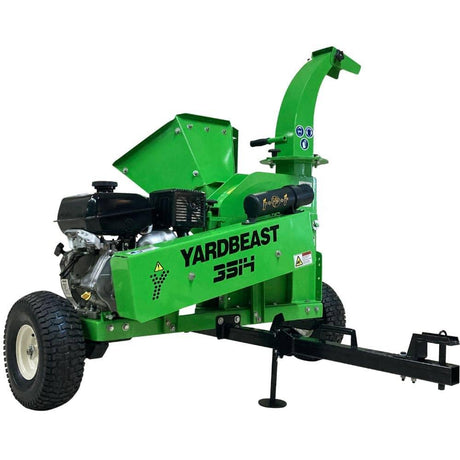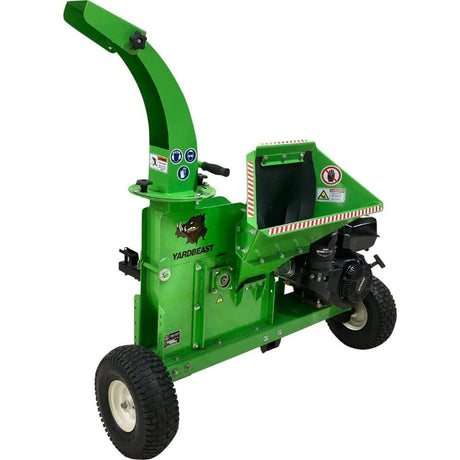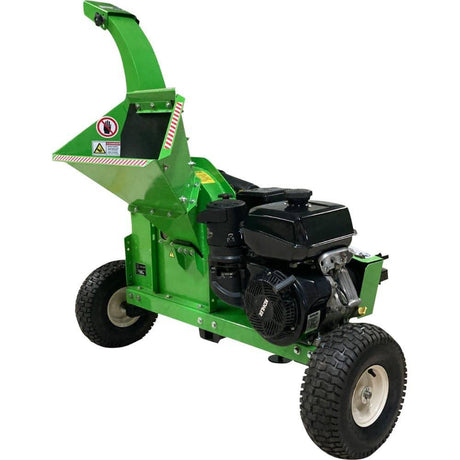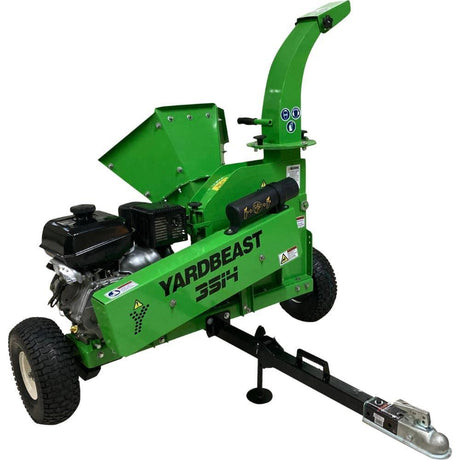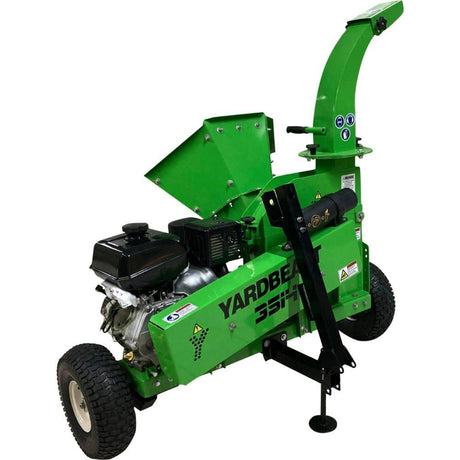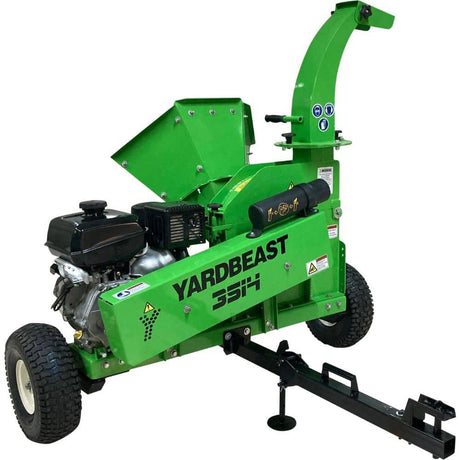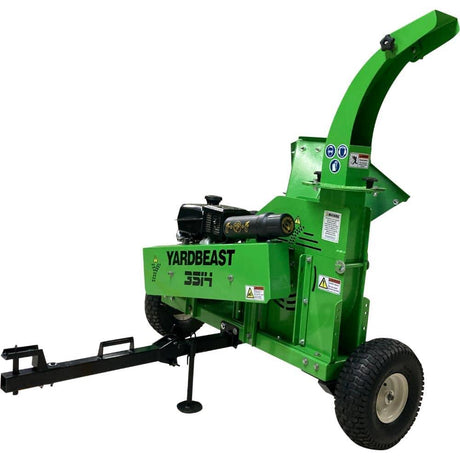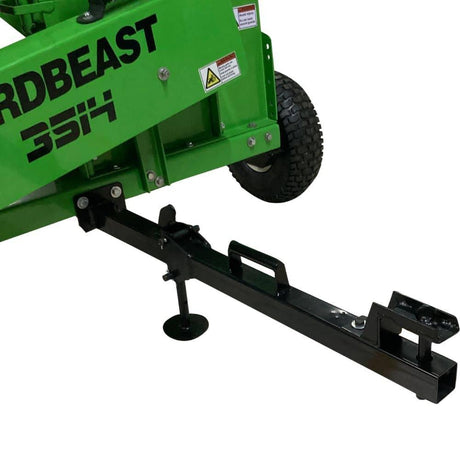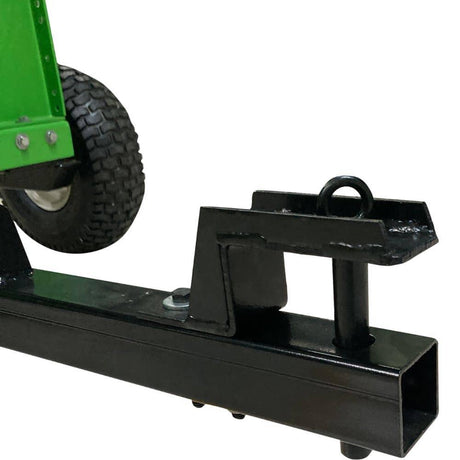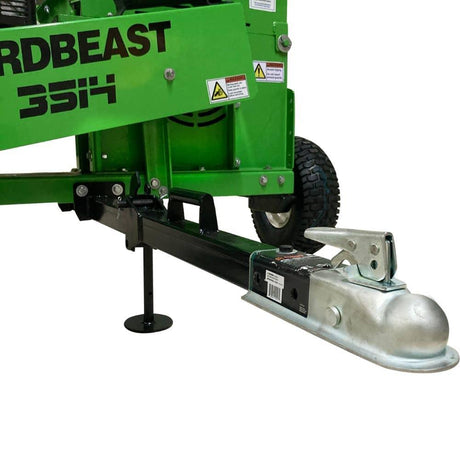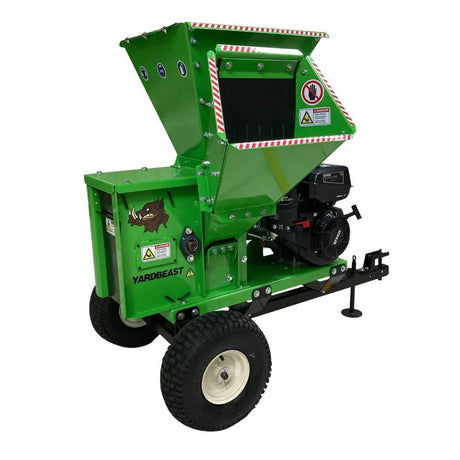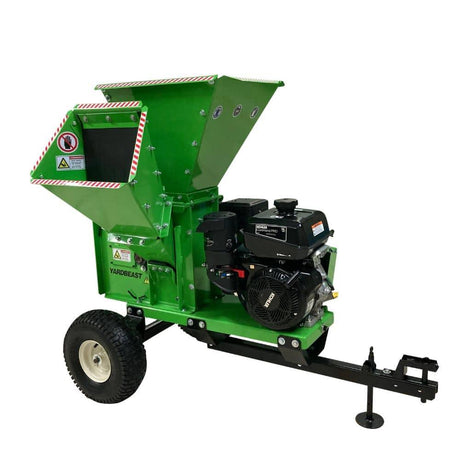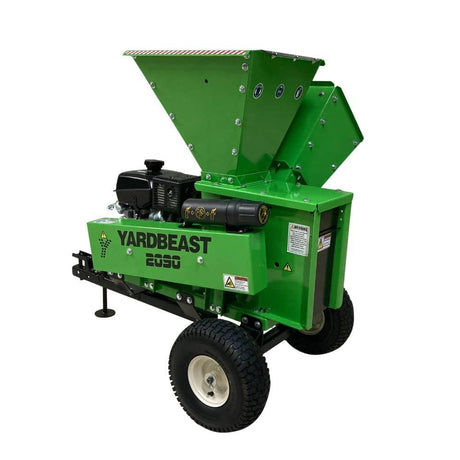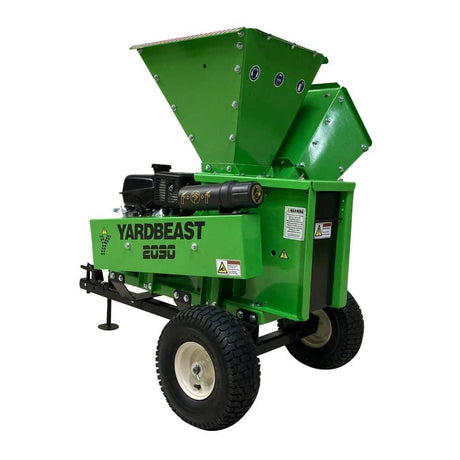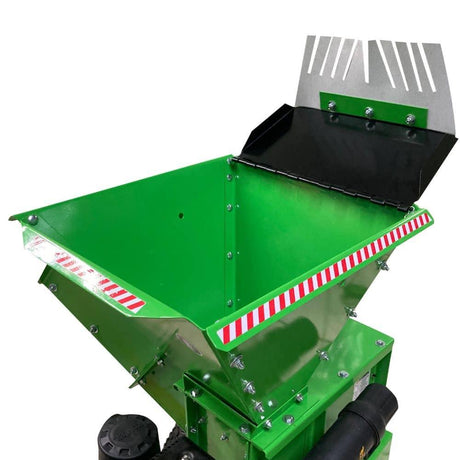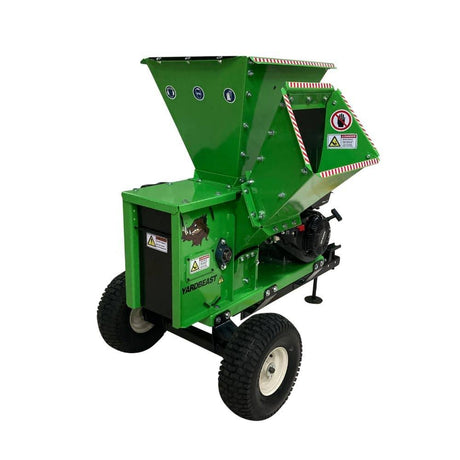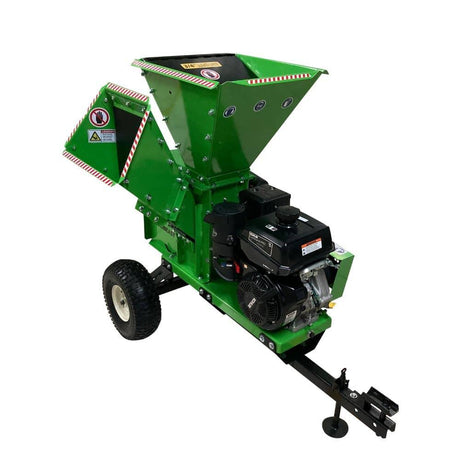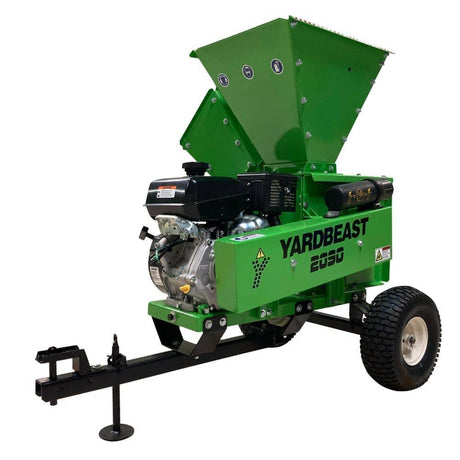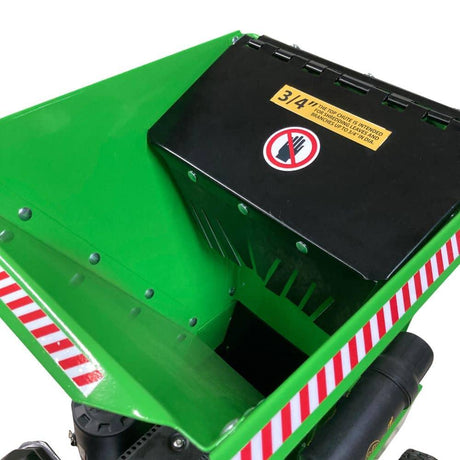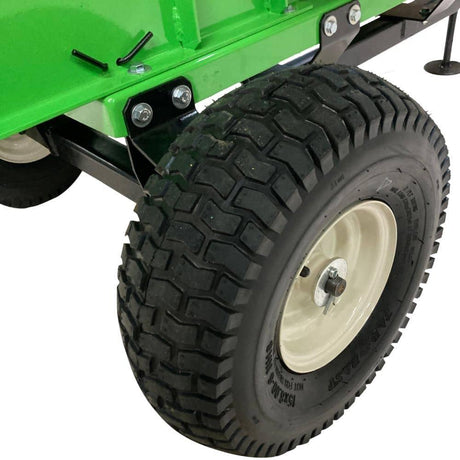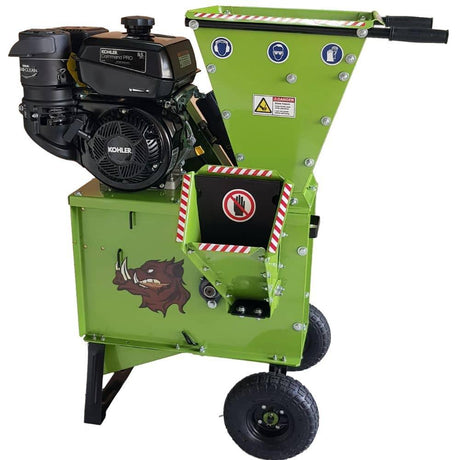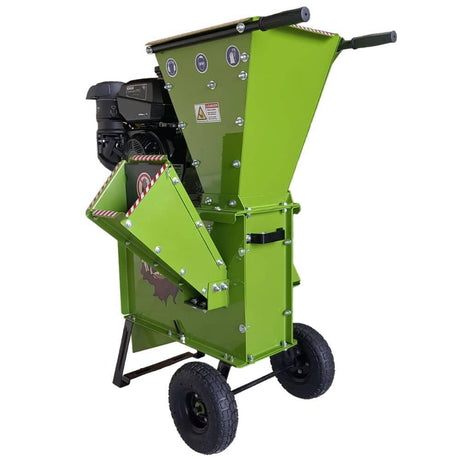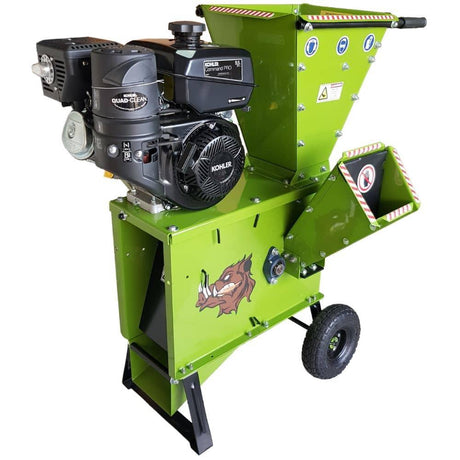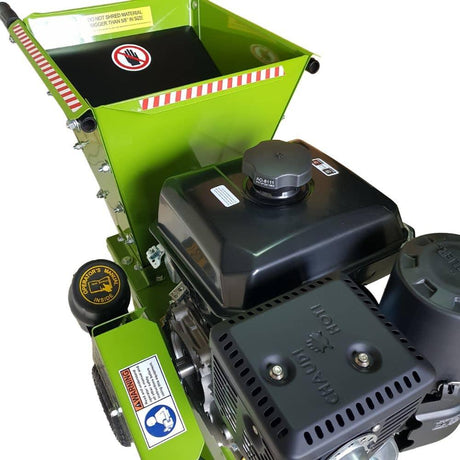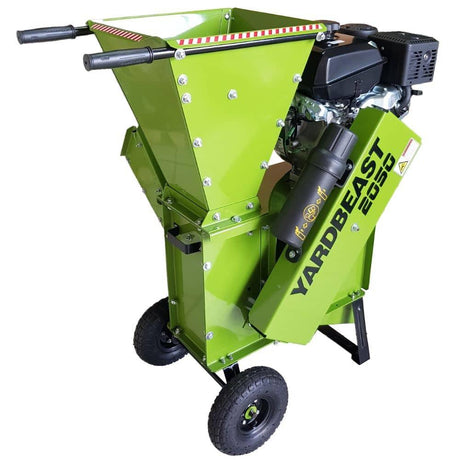- 8% off
SuperHandy
SuperHandy 3-Inch Gas Wood Chipper Compact - 7HP 212CC
$549.99$599.99Unit price /Unavailable - 6% off
- 7% off
- 13% off
Yardbeast
Yardbeast 3514ATV 3.5-Inch Professional Gas Wood Chipper
$2,999.99$3,459.99Unit price /Unavailable - 13% off
Yardbeast
Yardbeast 2090 3.5-Inch Gas Wood Chipper Shredder
$3,299.99$3,799.99Unit price /Unavailable - 13% off
Yardbeast
Yardbeast 2050 3-Inch Gas Wood Chipper Shredder
$2,599.99$2,999.99Unit price /Unavailable
Shop Small Wood Chippers for Quick, Efficient Yard Cleanup
What Counts as a Small Wood Chipper?
A small wood chipper—sometimes called a mini wood chipper or compact chipper—is designed to handle light-duty yard debris like twigs, leaves, and small branches. Most models in this category have a chipping capacity between 1.5 and 2.5 inches, making them ideal for routine garden maintenance and backyard cleanups.
These machines are typically powered by either a 14-amp electric motor or a 212cc gas engine, offering enough power to chip material efficiently without the bulk or weight of a commercial machine.
Who Should Use a Small Wood Chipper?
Small wood chippers are ideal for:
- Homeowners with trees or shrubs
- People maintaining a suburban backyard or garden space
- DIYers making mulch or compost from leaves and clippings
- Those needing a lightweight wood chipper that's easy to move and store
If you're looking for a beginner-friendly chipper for homeowners, this category is built for simplicity and convenience, not industrial strength.
Why Choose a Small Model Over Larger Chippers?
For residential use, going small often makes more sense:
- Lower noise levels: Great for neighborhoods
- Compact design: Fits in a garage or small shed
- Affordable: Most budget-friendly wood chippers fall in this range
- Less maintenance: Electric units in particular are plug-and-go
- Portable: Most models feature built-in wheels and are under 100 lbs
Unless you're dealing with logs or running a landscaping business, a small backyard chipper gets the job done without taking over your yard—or your weekend.
Explore Our Best-Selling Small Wood Chippers
Chipping Capacity: Ideal Branch Sizes and Output
Our top small models are built to handle:
- Branches up to 2–2.5 inches in diameter
- Leaves, twigs, and garden cuttings
- Light yard waste from pruning, trimming, or storm cleanup
Whether you're cleaning up maple branches or clearing dried vines, these machines turn debris into fine mulch or compost-ready material fast. If you're wondering, how thick of a branch can a small chipper handle?—this is your range.
Gas vs. Electric Small Chippers: What to Know
Both types have strengths—here's how to choose:
Electric small wood chippers
- Plug into any standard 120V outlet
- Quieter, cleaner, and low-maintenance
- Ideal for small yards, patios, or city properties
Gas-powered compact chippers
- Typically use a 212cc engine
- More powerful for heavier brush or palm fronds
- Better suited for larger yards or users without easy outlet access
If you want a quiet chipper for residential areas, electric is the way to go. For remote work or heavier limbs, gas wins on torque.
Portable, Compact, and Easy-to-Store Designs
Small doesn't mean weak—it means practical. Our best-selling models feature:
- Compact footprints that store easily in sheds or garages
- Built-in wheels for rolling across patios, yards, or driveways
- Foldable hoppers for tighter storage and transport
- Lightweight steel or reinforced plastic housings for durability
Many weigh under 80 lbs—perfect for one-person use. These are true portable wood chippers designed for flexibility and ease.
Lightweight Frames, Wheels, and Safety Features
Here's what you get with a top-tier residential wood chipper:
- Stable frames with low vibration for smooth operation
- Push-button electric start (on electric units)
- Safety hoppers with automatic shutoff when opened
- Collection bags or optional bins to manage chips and mulch
- Rubber tires or poly wheels for long-lasting mobility
These features make your experience safer and more efficient—especially if you're splitting time between gardening, cleanup, and composting.
How to Choose the Right Small Wood Chipper for Your Yard
Matching Capacity to Yard Size and Debris Type
Choosing the right small wood chipper starts with knowing what you'll feed into it. Ask yourself:
- Are you mostly clearing twigs, leaves, and garden waste?
- Do you regularly trim small tree limbs or woody shrubs?
- Is your yard a small city lot or a larger property with multiple trees?
If your debris is mostly soft and under 2", a compact electric chipper is all you need. For tougher brush or mixed waste, a 2.5" gas-powered chipper will give you more flexibility without going overboard.
Tip: Always match the chipping capacity to the largest material you handle—not the average.
Noise, Power Source, and Ease of Operation
For suburban neighborhoods or close-set homes, noise can be a dealbreaker.
- Electric small wood chippers are noticeably quieter—ideal for weekend work without bothering the neighbors.
- Gas models offer more power, but with more vibration and engine noise.
Both are beginner-friendly, but if simplicity is key, electric wins:
- Plug into any standard 120V outlet
- Push-button start
- No fuel, no fumes, minimal maintenance
Perfect for first-time users or anyone wanting a quiet chipper for residential areas.
Maintenance Tips and Storage Considerations
Small chippers are built to be low-maintenance, but here's what to keep in mind:
- Electric models: Wipe clean after use, check cords, and store in a dry spot
- Gas models: Check oil, sharpen or replace blades periodically, and drain fuel for long-term storage
- Blade access: Choose a design with easy blade replacement
- Storage: Look for foldable hoppers or lightweight frames that store vertically in a shed or garage
The goal is to find a home-use wood chipper that works hard when needed—and disappears when not.
Small vs. Large Wood Chippers: What's the Real Difference?
Performance, Portability, and Budget Comparison
| Feature | Small Wood Chippers | Large/Commercial Chippers |
|---|---|---|
| Branch Capacity | 1.5" to 2.5" | 3" to 7"+ |
| Power Source | 14-amp electric or 212cc gas | 420cc+ gas engines |
| Noise Level | Low (electric) to moderate (gas) | Loud |
| Weight | 50–100 lbs | 200–800+ lbs |
| Best For | Backyard cleanups, twigs, pruning debris | Tree removal, storm cleanup, high volume |
| Budget Range | $$ (affordable) | $$$$+ |
If you're managing weekend pruning and leaf cleanup, a lightweight wood chipper does the job without the bulk or price tag.
Which One Fits Your Home Use and Yard Workload?
Choose a small chipper if:
- You're dealing with mostly twigs, branches under 2", or garden trimmings
- You want easy storage, low noise, and portability
- You have a residential or small suburban yard
Go larger if:
- You regularly chip hardwoods, thick limbs, or have a high volume of debris
- You're maintaining a large property, farm, or rental lots
- You need a high-torque engine for heavy-duty chipping
Bottom line: For most homeowners, a small wood chipper is the right size, power, and price.
Frequently Asked Questions (FAQs)
What Size Branches Can a Small Wood Chipper Handle?
What Size Branches Can a Small Wood Chipper Handle?
Most small backyard chippers handle up to 2–2.5 inches in diameter, depending on the model and power source.
- Electric units: Best for softer material and branches under 2"
- Gas-powered compact chippers: Can handle 2.5" thick limbs, even tougher wood types
If you're feeding in material bigger than that, step up to a mid-sized or towable model to avoid jams or stalling.
Is a Small Wood Chipper Powerful Enough for Hardwood?
Is a Small Wood Chipper Powerful Enough for Hardwood?
Yes—with limits.
A small gas chipper with a 212cc engine can handle seasoned hardwood branches up to 2.5 inches, especially if the grain is clean and dry. But if you're chipping fresh oak, palm, or knotty limbs, it may bog down or require manual clearing.
Electric models aren't ideal for hardwood—they're better for dry sticks, trimmings, and leafy waste. For hardwood, go gas or go bigger.

